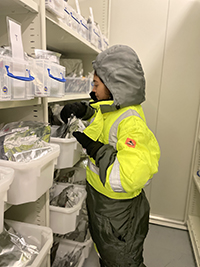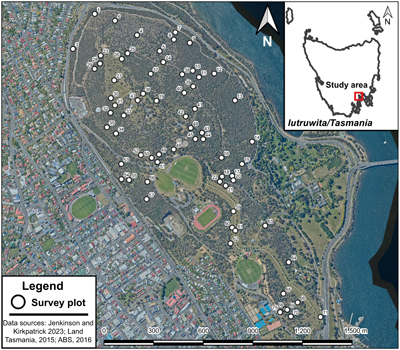BT24027Microhabitat traits and herbivory of Calodesma collaris (Lepidoptera: Erebidae) affect the establishment of Vriesea incurvata (Bromeliaceae) plants translocated to the Atlantic Forest of southern Brazil
 , Silvana Vargas do Amaral, Simeão Moraes and Annette Droste
, Silvana Vargas do Amaral, Simeão Moraes and Annette Droste 
Vriesea incurvata is an epiphytic tank bromeliad endemic to the Atlantic Forest in Brazil, a biodiversity hotspot with about 90% of its domain altered. We evaluate the influence of herbivory on the survival and development of micropropagated V. incurvata translocated into two micro-environments: (1) gallery forest; and (2) forest interior. Herbivory by Calodesma collaris, together with abiotic factors, exerts differential pressure on translocated populations, with a lesser negative impact in the gallery forest. Greater spacing between plants attached to the phorophyte, in trees scattered throughout the forest fragment, might minimise the impact of caterpillars on the translocated population. Image by Márcio Hisayuki Sasamori and Delio Endres Júnior.


















